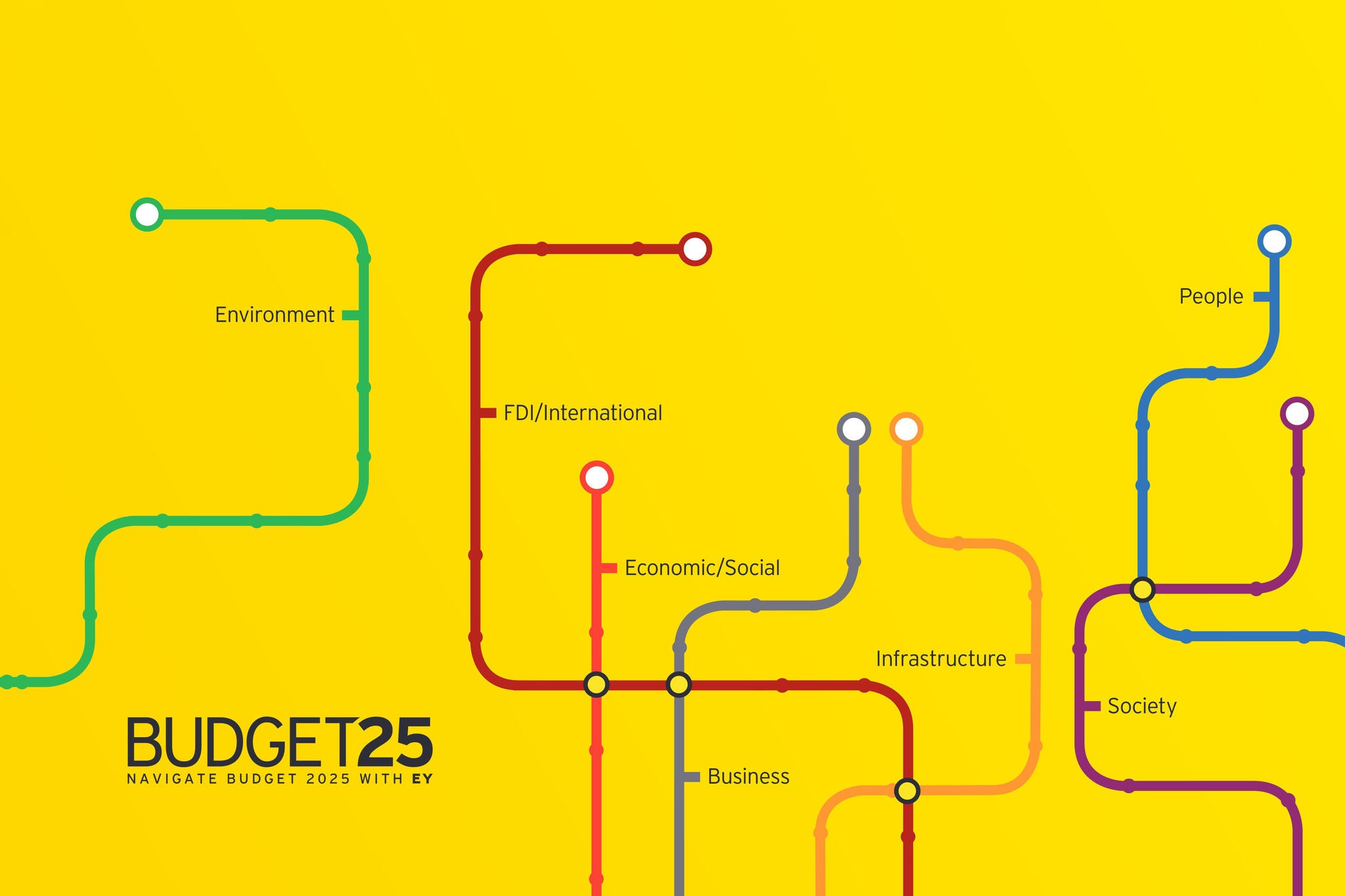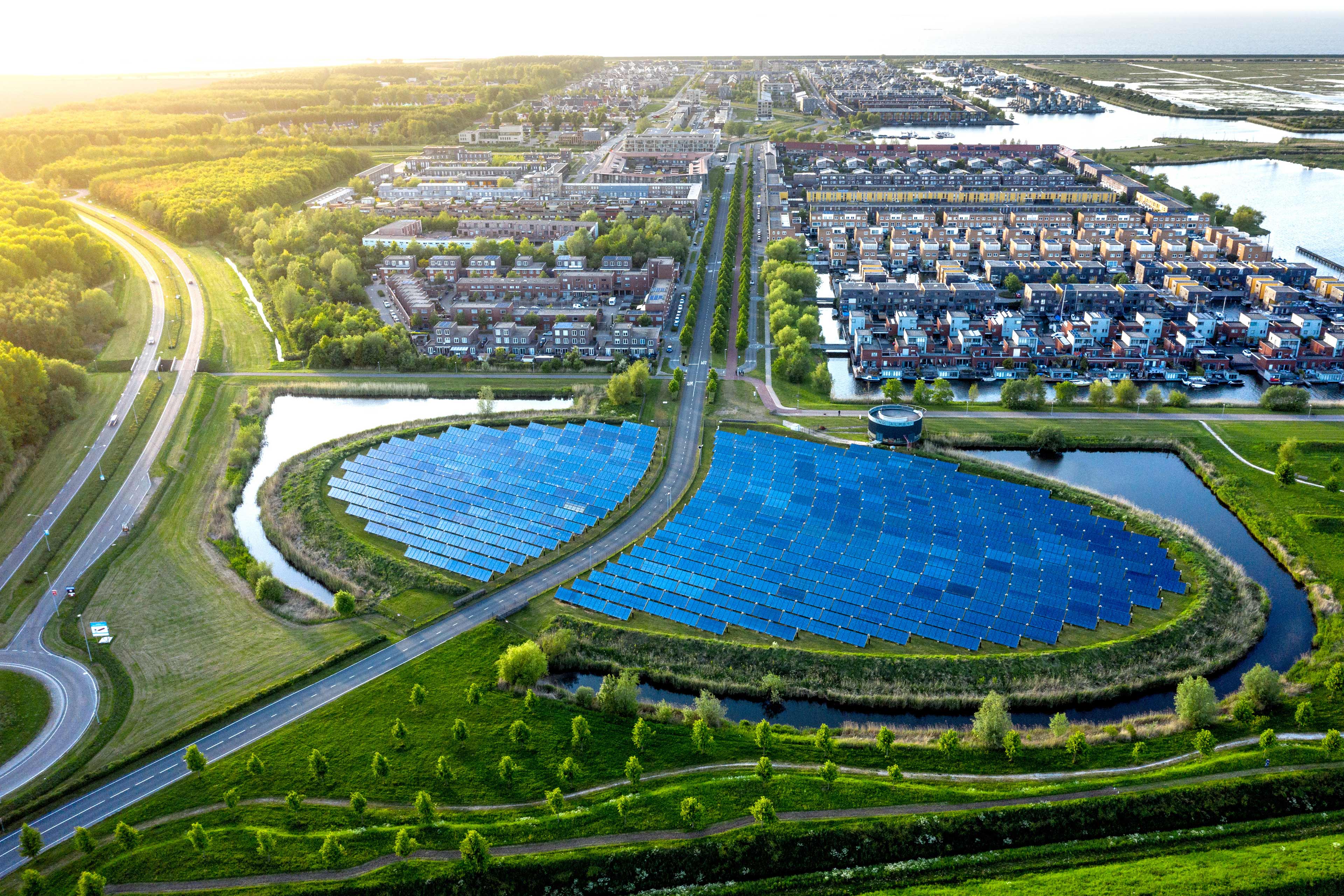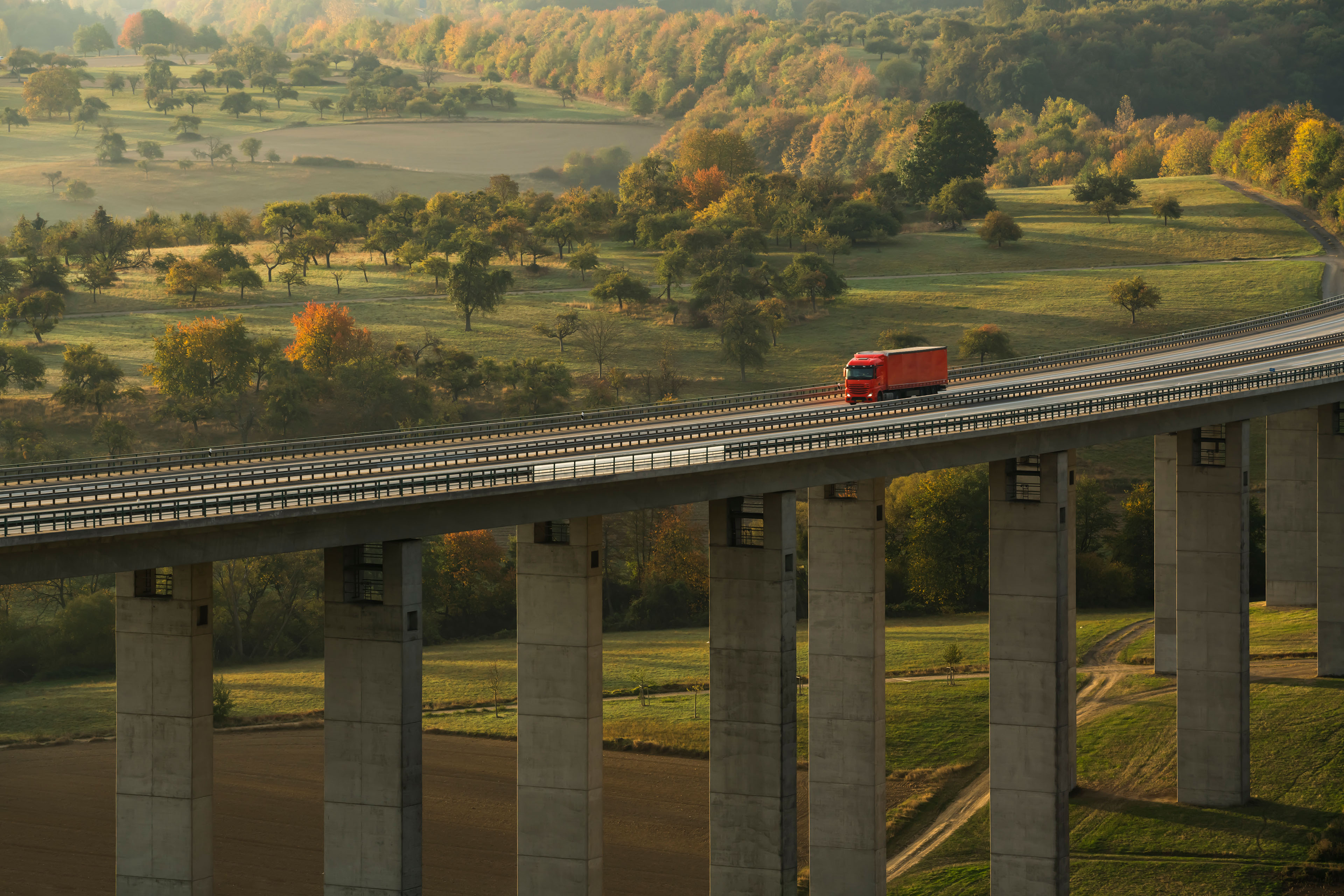EY refers to the global organization, and may refer to one or more, of the member firms of Ernst & Young Global Limited, each of which is a separate legal entity. Ernst & Young Global Limited, a UK company limited by guarantee, does not provide services to clients.

Budget 2025: Balancing Fiscal Prudence with Strategic Investments.
In brief
- Budget 2025 will aim to leverage Ireland's strong fiscal position to support households and businesses, while investing in infrastructure and addressing underlying economic vulnerabilities.
- Focus is likely to be on environmental sustainability, technological leadership, and adapting to global trade dynamics to maintain competitiveness.
- Enhancements to R&D incentives, support for digital transformation, and investment in green infrastructure would be welcome to position Ireland as a forward-looking, resilient economy.
As Ireland approaches the unveiling of Budget 2025, the country finds itself in an advantageous fiscal position, with very positive public coffers following recent economic performance. This financial buoyancy presents the Government with a unique opportunity to provide additional support to households and businesses, enhance public services, and make further investments in critical infrastructure.
Our latest EY Economic Eye, however, flags that despite the optimistic headline fiscal numbers, caution is warranted. The apparent fiscal strength conceals underlying vulnerabilities that could undermine long-term economic stability. Ireland must contend with the 'four Ds'—demographic change, decarbonisation, digitalisation, and the risk of de-globalisation. Each of these factors presents its own set of challenges and opportunities for the Irish economy.
Moreover, the current economic climate offers limited spare capacity, which means that any significant fiscal stimulus could lead to overheating, potentially exacerbating inflationary pressures. Therefore, Minister Chambers, Minister Donohoe and the Irish Government are tasked with a delicate balancing act in crafting Budget 2025. They must navigate the fine line between providing immediate relief and maintaining fiscal prudence, between ramping up spending and safeguarding savings, and between addressing present needs and investing in the future.
In this context, Budget 2025 is not just a financial statement but a strategic document that will signal Ireland's approach to managing its economic prosperity amidst both domestic and global uncertainties. The decisions made will reflect the Government's priorities and its vision for Ireland's role in an increasingly complex and interconnected world.
As Ireland navigates the complexities of the current economic landscape, the budget will be instrumental in reinforcing the country’s position as a dynamic and forward-looking economy. With a focus on innovation, trade diversification, and sustainability, Ireland is poised to not just compete but thrive in the global arena, setting a benchmark for economic resilience and prosperity.
Environment & Infrastructure: Sustaining Ireland’s Future
The urgency of climate change has made environmental sustainability a non-negotiable aspect of economic planning. Ireland's Budget 2025 is anticipated to introduce measures that promote green technologies, reduce carbon emissions, and enhance climate resilience. By incentivising sustainable practices and investing in green infrastructure, Ireland can turn environmental stewardship into a competitive advantage, aligning economic growth with environmental responsibility.
Minister Chambers and Minister Donohoe have a unique opportunity to invest in critical infrastructure more broadly, leveraging the strength of the public finances. Investment is required, and expected, to enhance housing, transport, energy, and other key sectors, while honouring Ireland’s commitments to sustainability through projects like wind farms and energy-efficient housing. These strategic investments would have the dual benefit of improving citizens' quality of life and addressing ongoing social issues, while also driving economic growth and competitiveness.
Global Dynamics: Securing Ireland's Future
The unveiling of Ireland's Budget 2025 comes at a time when the global landscape for foreign direct investment (FDI) is undergoing significant shifts. Deteriorating relations between major trading blocs, the rise of economic populism, and the strategic reconfiguration of global supply chains are contributing to an increasingly complex investment environment. Additionally, the OECD's Base Erosion and Profit Shifting (BEPS) initiative is reshaping the international tax landscape.
In an era marked by geopolitical tensions, Ireland's trade policies need to be both resilient and adaptive. The global trade environment has been reshaped by economic sanctions and shifting alliances, prompting a re-evaluation of Ireland's trade relationships. Budget 2025 will likely underscore the importance of bolstering domestic industries and diversifying trade partnerships to safeguard Ireland's economic interests and sustain its competitive position in international markets.
The implementation of Pillar Two of the OECD agreement, which standardises a minimum 15% tax on large companies, has levelled the playing field for corporation tax rates. Despite this, Ireland can still leverage its historic tax attractiveness, for example through the introduction of a dividend exemption, and as highlighted below, a continued enhancement of Ireland’s R&D regime. Additionally, the tax treatment of senior executives' compensation packages could be revisited to attract top-tier talent and secure intra-multinational company projects for Ireland.
The global FDI environment is increasingly characterised by policy interventions aimed at supporting geopolitical and strategic industry objectives, as seen with legislative acts in the US and Europe. Ireland must evaluate how it can remain competitive through its grant, incentives, and tax credit regimes in this new context.
Technological Leadership: Investing in Ireland's Future
The digital revolution has been a catalyst for economic transformation, and Ireland has been at the forefront of embracing this change. The upcoming budget is expected to continue this trajectory, with likely investments aimed at fostering innovation, supporting tech startups, and enhancing digital infrastructure. By doing so, Ireland aims not only to maintain its status as a tech hub but also to lead in sustainable practices, ensuring long-term competitiveness and resilience.
In our recent Attractiveness Survey for Ireland, investors highlighted the importance of supporting high-tech industries and fostering innovation as key areas for Ireland to concentrate its efforts. In response to what would enable businesses to invest more in research and development (R&D) within Ireland, the need for a skilled workforce and enhanced collaboration with research institutes and universities emerged as top priorities. Additionally, R&D tax incentives and government supports and grants were also noted as significant factors.
Ireland's R&D tax credit system, which has seen continual improvements since its inception in 2004, is a cornerstone of Ireland’s FDI success story. The recent increase of the credit from 25% to 30% has been well-received; however, survey responses indicate that one in four investors believe Ireland lags behind other regions in terms of tax incentives availability. Ireland could consider going even further to bolster the R&D tax credit system including an increase in the rate of the credit and expand the definition of R&D to include innovation in areas like AI and blockchain.
The system could also be expanded to introduce a digitalisation credit. While this doesn’t technically fall within the definition of R&D, it would reinforce the continuing competitiveness of both Irish businesses and multinationals based in Ireland.
Conclusion
Budget 2025 presents an opportunity for Ireland to assert its adaptability and strategic vision in the face of a transforming global economic environment. By focusing on innovation, enhancing tax incentives, and aligning with strategic industry objectives, Ireland can reinforce its competitiveness on the global stage. The budget is more than a fiscal document; it is a declaration of Ireland's commitment to maintaining its competitive edge and securing its place as a key player in the global economy.
Summary
Budget 2025 is a pivotal moment for Ireland to utilise its strong fiscal position to support households and businesses, invest in infrastructure, and address economic vulnerabilities. The budget is expected to prioritise environmental sustainability, technological leadership, and adaptation to global trade dynamics to ensure Ireland remains competitive.
Related articles
Why we need imaginative action to bolster Ireland’s FDI proposition
Ireland's FDI future hinges on bold moves in cleantech and renewable energy, leveraging incentives and public finances to maintain its competitive edge.
Economic Eye, Autumn Forecast 2025
Economic Eye forecast provides an all-island economic review and commentary for the Republic of Ireland and Northern Ireland.
Why Budget 2025 must tackle old and new challenges
Explore how Budget 2025 can shape the economy and environment with new tax strategies. Find out more about sustainable and competitive measures.







